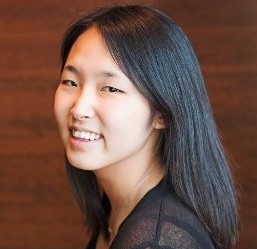How to combat perfectionism among students
It can be tempting for students to pursue perfection in the university application process – but aspiring to a non-existent ideal won’t make them happy

You may also like
“I should do the perfect activity for the application.”
“This university is perfect for me.”
“I need to submit a perfect application.”
The idea of perfection is all around us. In an age of careful curation of social media, it’s easy to get lost in gleaming versions of reality and to pursue perfection in our personal and professional lives. For a high school senior, perfectionism can seep into the university application process – from activities to choice of destination.
Perfectionism in the university application process
We know the pain of advising students not just to choose an activity for the sake of their university application. But pursuit of a “perfect activity” is a hard goal to shake.
Looking for a “perfect university” can be equally damaging if a destination is seen as a a holy grail where everything will be made perfect once one acquires the coveted offer letter.
And the pressure and stress of getting every word exactly right on one’s Early Decision application (a “perfect application”) might be familiar.
The tyranny of ‘should’
Perfectionism does not only encompass the idea of perfection; it incorporates the idea of “should”. As in: “I should choose the perfect activity,” “I should go to the perfect university” and “I should be the perfect counsellor.”
These sentiments all stem from the natural desire to move your life in a positive direction. But this desire can turn into a rule. So, for example, thinking “Exercise is good” can turn into “I should exercise for an hour five times a week.” And when you harbour these lofty standards turned rules, you can experience feelings of guilt and discomfort when you fail to adhere to them. So, for example, you could end up feeling guilty for exercising “only” four times a week for 30 minutes.
These rules are meant to serve us but often we end up serving the rules.
The irrational and harmful impact of perfection
Perfectionism and “should” are examples of irrational beliefs. An irrational belief is a term used by psychologists adhering to the cognitive behavioural therapy perspective, to point out beliefs about the world that are inconsistent with reality.
It is irrational to aspire towards perfection because life is naturally characterised by bumps and imperfections, and will never be perfect. Perfection is an idea in our head that does not exist in reality. We can aspire towards high standards but we cannot achieve perfection.
The idea that one should do something can also be a form of irrational belief, because it demonstrates how one is expecting people or even institutions to conform to one’s desire with no regard for what is realistic.
Read more about irrational beliefs in the university application process here.
When we aspire towards what cannot be achieved (perfection) or expect oneself or reality to conform to a set of specific standards (should), this can have deleterious effects on our mental health. The harmful effects of perfectionism include stress, anxiety and depression.
Some of us struggle more with perfectionism than others. If you have certain personality traits or were exposed to certain environments growing up, perfectionism can develop more easily. Fortunately, it is possible to fight perfectionism.
How to fight perfectionism
Teenagers already tend to be very self-conscious, as a result of their developing brains. So it makes sense that a student might seek unrealistically high standards in this nerve-wracking university application process that asks them to present themselves to the world.
Even though we might not be social-emotional counsellors, we are right there with the students during the application process. And we can help them to gain a more realistic and compassionate view of themselves.
Changing your language
Earlier, we pointed out that perfectionism can be broken down into the idea of perfection and “should”. We can actively challenge both these notions.
First, let’s remind our students that there is no perfect activity. There is no perfect application. There is no perfect university.
We can replace the adjective “perfect” with other more helpful descriptors, such as:
“An activity you will enjoy”
“An application you are satisfied with, which reflects who you are”
“A university where you would potentially grow and thrive”
Second, let’s replace “should” with other words. Good alternatives are “could”, “it would be good if” or even “will”.
If you like grammar, you probably noticed that these two strategies involve targeting the noun and the verb. Let’s try substituting these in the statements at the beginning of the article.
“I should do an activity perfect for my application” becomes “I could do an activity that I enjoy and am good at,” bringing relief and joy to this journey of growth and self-awareness.
Changing “I should go to the perfect university” to “it would be good if I went to a university that is a good fit for me” allows students to look into the future but not to lock themselves into a single scenario that would result in devastation if it didn’t materialise.
And changing “I should create a perfect application” to “I will create a great application” can release the student from paralysis, spurring them towards action.
Distinguishing between high standards and perfectionism
It might also be helpful to distinguish between having high standards for oneself but being forgiving of mistakes (sometimes called healthy perfectionism) and aspiring towards an impossible set of standards (sometimes called “unhealthy perfectionism”).
One way to think about the difference between the two is how you let your standards affect you. Are your standards productive and helpful? Or do you let them trip you up? It’s a delicate balance, so watch how your students apply their standards in their life.
And do praise your students for having high standards – this is what makes our lives and the world a better place. However, students also need to be OK with not always being able to meet these standards. This quotation, from clergyman Norman Vincent Peale, who popularised the concept of positive thinking, sums it up well: “Shoot for the moon. Even if you miss, you’ll land among the stars.”
Realise the drawbacks of perfectionism
When you are spending time thinking about the standards you have to reach and how to reach them, you are actually spending less time and energy engaging in activities that will help you meet those standards. The term “analysis paralysis” describes the mindset when one simply cannot move on because one is overwhelmed by overthinking and overanalysing – which can be caused by the futile pursuit of perfection.
This is why the strategy of substituting “should” with “will” is so effective – because you can shift your mindset to actually doing it instead of thinking about doing it. Let’s remind our students to invest their energy in activities that support their mental well-being and efficiency – which means not overthinking the result, but taking the first small step.
Educate your students actively – and repeatedly
It’s easy to help your student understand this now but a week later the thoughts may crop up again. We are inundated with images and the idea that perfection is possible to achieve, so it can take consistent reminders.
Some thoughts spring up like weeds, so you may need to actively work on challenging them consistently (the analogy is taken from this workbook for teens).
Organising a workshop in conjunction with your social-emotional counsellor, based on the ideas here, can be helpful if you are working with a cohort that struggles with perfectionism. Or having a visual about perfectionism (for example, healthy versus unhealthy perfectionism) in a space where you talk to students can help introduce the topic into one-to-one conversations naturally.
The idea of “perfect” is alluring and the trap of “should” is easy to fall into. However, let us counsel our students to be more realistic and compassionate towards themselves before, during and for many years after the university application process.





